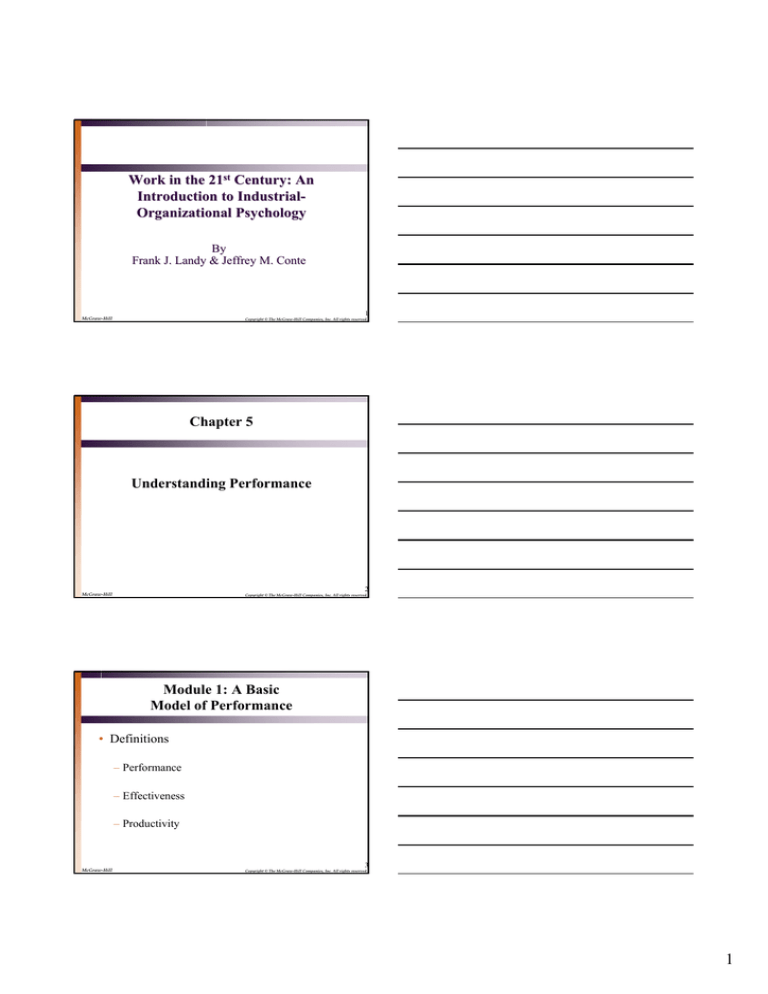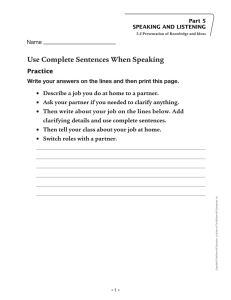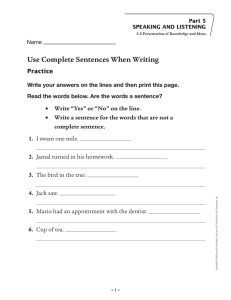
Work in the 21st Century: An
Introduction to IndustrialIndustrialOrganizational Psychology
By
Frank J. Landy & Jeffrey M. Conte
1
McGraw-Hill
Copyright © The McGraw-Hill Companies, Inc. All rights reserved.
Chapter 5
Understanding Performance
2
McGraw-Hill
Copyright © The McGraw-Hill Companies, Inc. All rights reserved.
Module 1: A Basic
Model of Performance
• Definitions
– Performance
– Effectiveness
– Productivity
McGraw-Hill
3
Copyright © The McGraw-Hill Companies, Inc. All rights reserved.
1
Module 1 (continued)
• Campbell’s model of job performance
– Determinants of job performance
• Declarative knowledge
• Procedural knowledge and skill
• Motivation
– Performance components essential to every job
• Core task proficiency
• Demonstrated effort
• Maintenance of personal discipline
4
McGraw-Hill
Copyright © The McGraw-Hill Companies, Inc. All rights reserved.
Module 1 (continued)
• Criterion deficiency
• Criterion contamination
• Ultimate criterion vs. actual criterion
McGraw-Hill
5
Copyright © The McGraw-Hill Companies, Inc. All rights reserved.
Campbell’s Determinants of Job Performance
McGraw-Hill
6
Copyright © The McGraw-Hill Companies, Inc. All rights reserved.
2
Module 2: Extensions of the
Basic Performance Model
• Task performance
• Contextual performance
– Altruism
– Generalized compliance
7
McGraw-Hill
Copyright © The McGraw-Hill Companies, Inc. All rights reserved.
Module 2 (continued)
• Types of performance measures
– Objective measures
– Judgmental measures
– Personnel measures
• Adaptive performance
• Expert performance
– Deliberate practice
8
McGraw-Hill
Copyright © The McGraw-Hill Companies, Inc. All rights reserved.
Module 2 (continued)
• Constraints on performance
– Counterproductive employee behaviors
• Deviance directed toward the organization
• Deviance directed toward other individuals
• Dishonesty, absenteeism, & sabotage
– Lordstown Syndrome
McGraw-Hill
9
Copyright © The McGraw-Hill Companies, Inc. All rights reserved.
3
Module 3: Job Analysis: Fundamental
Properties and Practices
• Purpose of job analysis
• Uses of job analysis information
Performance assessment
Job description
Selection
Training
Workforce reduction/restructuring
Recruiting
Promotion/job assignment
Criterion development
Compensation
10
McGraw-Hill
Copyright © The McGraw-Hill Companies, Inc. All rights reserved.
Module 3 (continued)
• Brief history of job analysis
– Job psychograph
• Types of job analysis
– Task-oriented
– Worker- oriented
• Next steps:
– KSAOs and Subject Matter Experts (SMEs)
11
McGraw-Hill
Copyright © The McGraw-Hill Companies, Inc. All rights reserved.
Module 3 (continued)
• How job analysis is done
– Common methods
• Observation
• Interviews
• Critical incidents and work diaries
• Questionnaires/surveys
McGraw-Hill
12
Copyright © The McGraw-Hill Companies, Inc. All rights reserved.
4
Module 4: Job Analysis:
Newer Developments
• Electronic performance monitoring
• Can be cost effective
• Has potential to provide detailed and
accurate work logs
• Cognitive task analysis
• Think-aloud protocol
• Time consuming, requires extensive
expertise
13
McGraw-Hill
Copyright © The McGraw-Hill Companies, Inc. All rights reserved.
Module 4 (Continued)
• Context of work
– Interpersonal relationships
– Physical work conditions
– Structural job characteristics
• Personality-Related Position
Requirements Form (PPRF)
McGraw-Hill
14
Copyright © The McGraw-Hill Companies, Inc. All rights reserved.
Sackett & DeVore
Hierarchical Model of Deviance
McGraw-Hill
15
Copyright © The McGraw-Hill Companies, Inc. All rights reserved.
5
Module 4 (Continued)
• PC-based job analysis instruments
– Work Profiling System (WPS)
– Dictionary of Occupational Titles (DOT)
– Occupational Information Network
(O*NET)
• Competency modeling
McGraw-Hill
16
Copyright © The McGraw-Hill Companies, Inc. All rights reserved.
Structure of WPS Questionnaires
McGraw-Hill
17
Copyright © The McGraw-Hill Companies, Inc. All rights reserved.
O*NET Data Bases
McGraw-Hill
18
Copyright © The McGraw-Hill
Copyright © The McGraw-Hill Companies, Inc. All rights reserved.
6
Module 5: Job Evaluation,
Comparable Worth, and the Law
• Job evaluation and compensable factors
• Comparable worth
– Internal and external controls
– Equal Pay Act of 1963
• Job analysis and employment litigation
– Uniform Guidelines on Employee Selection
Procedures (1978)
McGraw-Hill
19
Copyright © The McGraw-Hill Companies, Inc. All rights reserved.
Job Analysis in Assessment
McGraw-Hill
20
Copyright © The McGraw-Hill Companies, Inc. All rights reserved.
7





